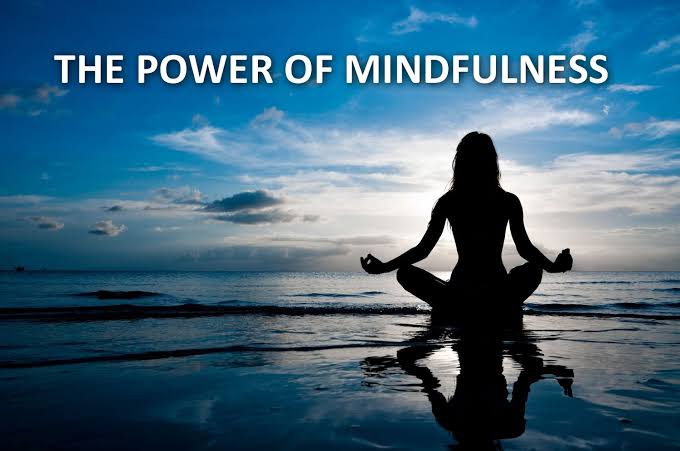The Power of Mindfulness in Daily Life
Introduction
In today’s fast-paced and highly connected world, stress, distractions, and mental fatigue have become part of daily life. Mindfulness, the practice of being fully present and aware in the current moment, offers a powerful antidote to these challenges. As of 2025, mindfulness has evolved beyond a wellness trend into a scientifically supported practice embraced in workplaces, schools, and personal routines worldwide. By incorporating mindfulness into daily life, individuals can enhance focus, reduce stress, and improve overall well-being.
Understanding Mindfulness
Mindfulness is the conscious act of paying attention to the present moment without judgment. It involves observing thoughts, emotions, and sensations without getting caught up in them. Unlike multitasking or living on autopilot, mindfulness encourages deliberate engagement with each experience, whether it is eating, walking, or conversing.
Core aspects of mindfulness include:
- Awareness: Being fully conscious of surroundings, thoughts, and feelings
- Non-Judgment: Observing without labeling experiences as good or bad
- Presence: Engaging in the moment without dwelling on the past or future
Mental and Emotional Benefits of Mindfulness
1. Reduced Stress and Anxiety
Mindfulness techniques, such as meditation and deep breathing, calm the nervous system and reduce the production of stress hormones like cortisol. By focusing on the present, individuals worry less about past regrets or future uncertainties.
2. Improved Focus and Concentration
Practicing mindfulness trains the brain to maintain attention on a single task. This skill enhances productivity and cognitive performance, especially in an era of constant digital distractions.
3. Emotional Regulation
Mindfulness fosters emotional intelligence by helping individuals respond to situations calmly instead of reacting impulsively. It encourages self-reflection and better understanding of personal triggers.
4. Enhanced Mental Clarity
Regular mindfulness practice clears mental clutter and promotes a sense of calm. This mental clarity leads to better problem-solving and decision-making in daily life.
Physical Health Benefits of Mindfulness
Mindfulness positively impacts physical health by influencing the mind-body connection:
- Lower Blood Pressure: Relaxation techniques reduce cardiovascular strain
- Better Sleep Quality: Mindfulness exercises prepare the body and mind for restful sleep
- Pain Management: Mindful awareness reduces the perception of chronic pain
- Boosted Immunity: Stress reduction supports immune system function
Mindfulness in Daily Activities
Mindfulness is not limited to formal meditation sessions; it can be integrated into everyday activities to improve quality of life:
- Mindful Eating: Paying attention to taste, texture, and smell enhances enjoyment and prevents overeating
- Mindful Walking: Observing surroundings and breathing rhythm transforms simple walks into calming experiences
- Mindful Listening: Giving full attention during conversations strengthens relationships and empathy
- Mindful Work: Focusing on one task at a time increases productivity and job satisfaction
Simple Mindfulness Practices for Everyday Life
- Morning Breathing Exercises: Start the day with a few minutes of deep, mindful breathing.
- Gratitude Journaling: Write down three things you are grateful for each day to cultivate positivity.
- Digital Breaks: Pause technology use periodically to reconnect with the present moment.
- Body Scan Meditation: Spend 5–10 minutes noticing sensations from head to toe for relaxation.
- Mindful Pause: Before reacting to stress, take a few slow breaths to center yourself.
Mindfulness in the Modern World
As workplaces and schools embrace wellness initiatives, mindfulness has become an essential tool for enhancing mental health and performance. Companies incorporate mindfulness training to boost employee focus and reduce burnout, while schools integrate it into curricula to improve students’ emotional regulation and learning outcomes.
The rise of AI-powered mindfulness apps, smart wearables, and guided virtual sessions in 2025 has made practicing mindfulness more accessible than ever, allowing individuals to incorporate these habits seamlessly into busy schedules.
Conclusion
The power of mindfulness in daily life lies in its ability to transform ordinary moments into opportunities for peace, focus, and self-awareness. By fostering presence and emotional balance, mindfulness improves mental, emotional, and physical well-being. Practicing mindfulness consistently leads to reduced stress, better relationships, and greater life satisfaction. In a world full of distractions, mindfulness serves as a simple yet profound practice to live more intentionally and meaningfully.



